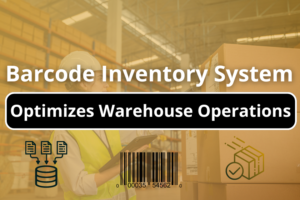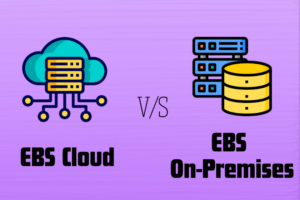Oracle SCM cloud applications assists you in achieving a progressive edge and powerlift your business operations. With the advent of Industry 4.0 and technologies like Artificial Intelligence (AI), Internet of Things (IoT), and Machine Learning (ML), adapting, implementing and executing SCM cloud is becoming efficient and effective in this challenging market. In this article, know how choosing oracle SCM cloud can benefit your enterprise capabilities.

Overview:
7 Benefits of Choosing Oracle SCM Cloud Solution
If you’re an enterprise architect using Oracle EBS or other Oracle ERP products and looking forward to creating agile, resilient and responsive cloud supply chain systems, we have you covered. Here are 7 reasons why relying on Oracle SCM Cloud is a game changer:
1. Cost Savings in Operations and IT
The cost of a one-time software license purchase and the need for technical resources to maintain the software are significant expenses for businesses who use on-premises ERP. Besides, current ERP systems are too expensive to upgrade to the latest versions. However, Fusion Cloud cuts down the expenditure as it is a SaaS product and lowers dependency on IT.
2. Innovation Opportunities
Oracle is proud of its ERP Cloud application suite since it combines the best features of all its on-premises products with cutting-edge AI capabilities to boost user productivity. Current ERP systems no longer meet the enterprise’s needs because they are old. Oracle offers architectural design to support available and upcoming next-generation technologies in ERP Cloud. This includes Adaptive Intelligence, Augmented Reality (AR), Robotic Process Automation (RPA), IoT, AI, ML, Chatbots and the Blockchain.
3. Fast Implementation
Cloud ERP products, compared to on-premises solutions, are faster to implement and easier to switch. Oracle has worked on data migration tools such as Oracle Soar to automate most of the migration process and allow enterprises to move to Cloud in around 20 weeks.
4. High Return on Investment (RoI)
Based on the data from hundreds of customers, independent research confirms that the RoI of a cloud solution is more than 3.2x when compared to a standard on-premises system.
5. Increased Security and Data Isolation
Oracle SCM Cloud uses a multilayer approach to security. Patching is distributed across systems, integrated on the cloud side, and quickly applied with cloud solutions to minimize risk. Customer access to the Cloud is encrypted, with the option to use a secure VPN connection. In a database with complete data isolation, no customer’s data is mixed with that of other cloud customers, minimizing risk and providing update flexibility with embassy-grade security.
6. Common and Modern User Experience (UX)
With Oracle SCM Cloud, applications are similar in appearance and use, making end-user learning more efficient. New users quickly become accustomed to Oracle SCM Cloud applications but thanks to contemporary user design concepts, regardless of their position and responsibilities.
7. Support Next-Generation Employees
An underlying principle of Oracle SCM Cloud is to address the experiences, education, and expectations of next-generation employees. As organizations compete for talent, especially for hard-to-fill positions in finance and other core business operations, the use of consumer-like applications that work with mobile devices and enable a work-anywhere, anytime, lifestyle will often drive talent acquisition, employee productivity, and career satisfaction. These are especially important as the millennial generation transitions to post-millennial gen-Z.
Conclusion
In this context, one thing that CIOs shall keep in mind at the time of transformation towards ERP Cloud is that customizations in Oracle SCM cloud, like that in any other cloud software, are limited, and companies shall standardize their business processes to meet the software requirements. Though Oracle SCM Cloud comes with latest functionalities, it is not a like-for-like replacement for Oracle’s on-premises suites, so CIOs shall assess enterprise readiness to embark on a journey by discussing the pros and cons of adopting cloud ERP with the business.
To sum up, ERP Cloud offers excellent opportunities for enterprises to transform their business processes and be a part of a cloud-first strategy. Current customers are contented with the ERP Cloud capabilities and are optimistic about tighter integration of the product with other application sets. Let Propel Apps help you with seamless cloud integration to achieve optimal business results.
Related Links
- The Future of Oracle E-Business Suite
- Critical Capabilities for Oracle Cloud Application Services, Worldwide




